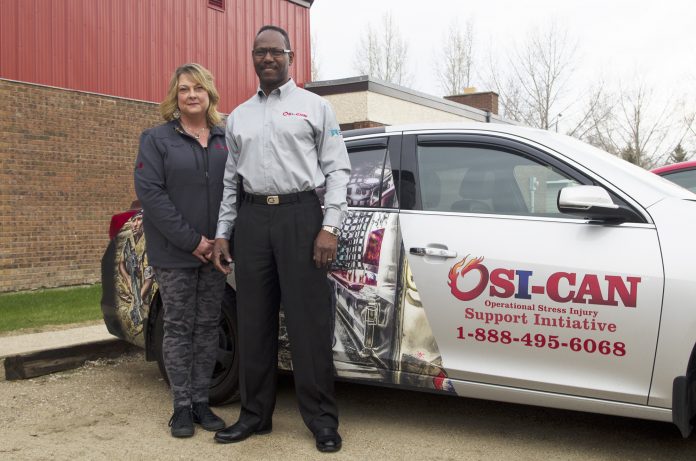
Bianca Bharti, Daily Herald
As PTSD awareness month comes to an end, support and discussion continue to grow in the community.
Michelle McKeveney, volunteer group leader at OSI-CAN Prince Albert, ran a campaign to raise awareness with people sporting teal ribbons — the colour representing the condition.
OSI-CAN is a joint project with the Canadian Mental Health Association and the Royal Canadian Legion and is a peer, non-profit initiative meant to help corrections and frontline workers living with OSI.
OSI stands for occupational stress injury and is a subset of post traumatic stress disorder. While PTSD is more general and can result from any one event, like a sexual assault, OSI is related to a workplace traumatic event experienced by corrections and frontline workers, McKeveney said.
“For many years people talked about it from a military perspective. In Prince Albert, [corrections] is the biggest representation in my group.”
Corrections workers make up a quarter (25.6 per cent) of public service workers across Canada who have PTSD, according to the statistics from the Tema Conter Memorial Trust. Paramedics come just behind (25.5 per cent), followed by firefighters (17.3 per cent), military (8 per cent) and police (7.6 per cent).
During the month, Karyn Steinke from EMS safety training company KPS Medic, hosted two barbecues to foster discussion.
After hosting her first set of barbecues last year, she felt motivated to do it again and create conversation, she said.
“It quite surprised me. We had people that none of us knew before. People came for the first time and spoke up and shared their stories.” At each barbecue, about 100 people turned out, according to Steinke.
All the proceeds from the barbecue go to the OSI awareness conference that she hosts in October. At the conference, there will be opportunities for people to share their stories, collect management materials and attend self-care workshops.
“If people don’t take a proactive approach, it can take one trigger — one smell, one taste, one something — and they’re right back at the incident that they never got help for 20 years ago,” said McKeveney.
OSI-CAN hosts group sessions every week where people share positive and negative experiences in their lives and talk about recovery in a safe environment. It also hosts programs for families and spouses of people with OSI. For more information, visit http://www.osi-can.ca/

